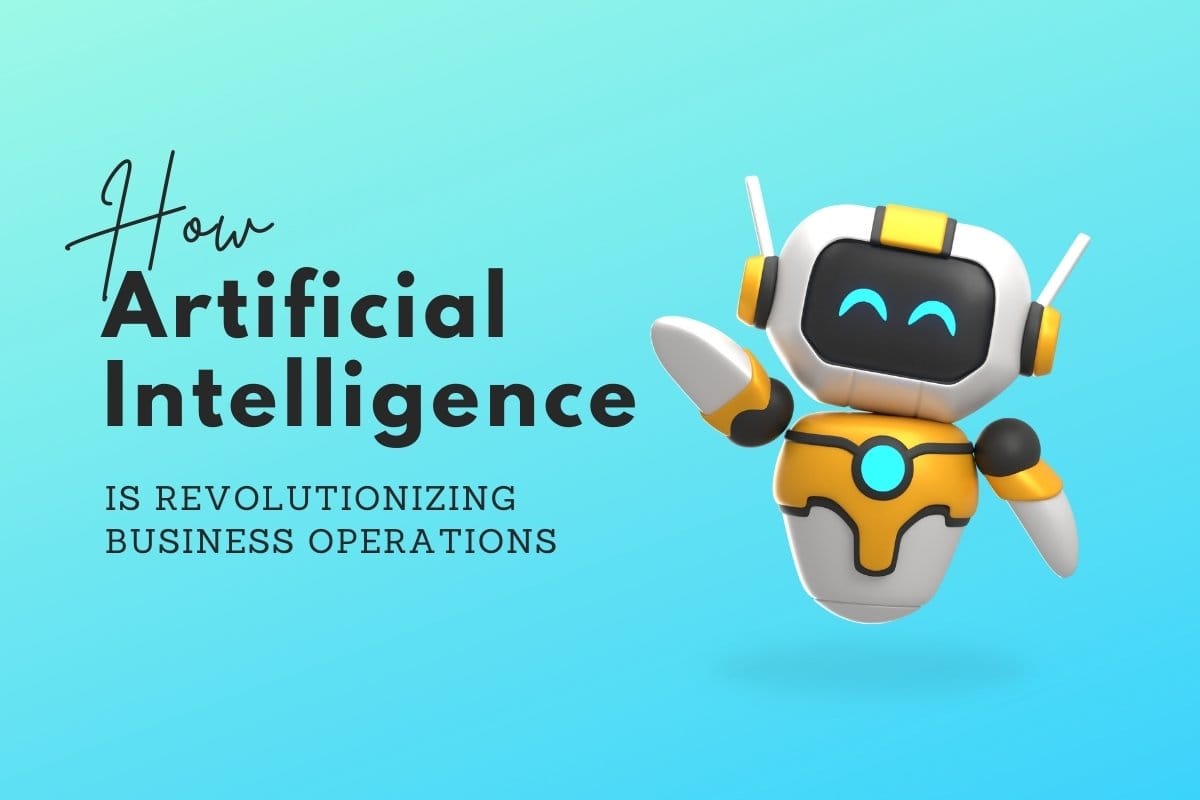
How AI is Revolutionizing Business Operations: The Future is Here
Artificial Intelligence (AI) is no longer a futuristic concept—it’s a present-day reality transforming how businesses operate across the globe. From automating routine tasks to making data-driven decisions, AI is driving innovation and efficiency across all industries. But what exactly is AI, and how is it reshaping business operations in ways that were unimaginable just a few years ago?
Let’s explore how AI is revolutionizing the business landscape and why it’s essential to harness its power.
1. Streamlining Operations with Automation
One of the most significant advantages of AI is its ability to automate repetitive and time-consuming tasks. From data entry to scheduling and even responding to customer inquiries, AI tools are handling the grunt work so that employees can focus on more complex, strategic initiatives.
AI-powered automation is saving businesses countless hours and reducing the potential for human error. Industries like manufacturing, logistics, and healthcare are already using AI-driven systems to automate production lines, manage inventories, and streamline supply chains. As a result, companies are becoming faster and more efficient, delivering better products and services to customers.
2. Enhancing Customer Experience with AI Assistants
AI is radically improving customer service and support, with AI-powered chatbots and virtual assistants becoming increasingly common. These systems are available 24/7, offering instant, accurate responses to customer inquiries, processing orders, or solving common issues.
For example, AI chatbots can assist customers in multiple languages, handle hundreds of queries simultaneously, and personalize recommendations based on user data. This not only improves the customer experience but also drives higher engagement and satisfaction.
Businesses that adopt AI assistants are cutting down on response times, increasing customer loyalty, and improving overall service quality. AI can provide personalized solutions faster and more effectively than traditional customer service channels, creating a seamless experience for consumers.
3. Data-Driven Decision Making
AI excels at processing vast amounts of data in a short time, enabling businesses to make data-driven decisions with greater accuracy and speed. Traditional data analysis methods often involve manual interpretation and are time-consuming. With AI, businesses can automate this process, gaining valuable insights from customer behavior, market trends, and internal operations in real-time.
For example, AI algorithms can analyze sales patterns to identify the most profitable products or predict customer needs. Companies in industries like finance and retail are using AI to optimize pricing, predict demand, and even detect fraud. The ability to leverage AI for decision-making gives businesses a competitive edge, enabling them to act quickly and stay ahead of trends.
4. Personalization at Scale
Today’s customers expect personalized experiences, and AI is making it easier than ever to deliver them. AI tools can analyze consumer data—such as browsing history, purchase behavior, and social media activity—to create highly targeted marketing campaigns and product recommendations.
Recommendation algorithms used by platforms like Netflix, Amazon, and Spotify are prime examples of AI in action. These algorithms use AI to predict what a customer might like based on past interactions, improving user engagement and satisfaction. By tailoring products, services, and communications to individual customer preferences, businesses can drive better results and foster stronger relationships.
5. Predictive Analytics for Proactive Solutions
AI-powered predictive analytics is another game-changer for businesses. By analyzing historical data and identifying patterns, AI can predict future outcomes, helping companies make more informed decisions.
For example, AI can predict equipment failures in manufacturing, allowing businesses to schedule maintenance before breakdowns occur. In retail, predictive analytics can forecast demand for specific products, helping companies optimize their inventory and reduce waste. In finance, AI can predict market trends, offering insights for smarter investment strategies.
The ability to anticipate customer needs, equipment issues, or market shifts gives businesses the foresight to act proactively, reducing risk and enhancing overall performance.
6. AI-Powered Cybersecurity
As businesses continue to digitize their operations, the need for robust cybersecurity has never been greater. AI is playing a pivotal role in enhancing cybersecurity defenses, identifying potential threats, and protecting sensitive data.
AI can monitor systems in real-time, detecting unusual patterns or behavior that could indicate a cyber attack. By learning from previous incidents, AI systems can adapt and respond to new threats more effectively. This is especially critical as cybercriminals become more sophisticated, using AI to carry out complex attacks.
With AI-driven cybersecurity, businesses can stay one step ahead of hackers, ensuring that their networks and data are secure from potential breaches.
7. Transforming Human Resources with AI
AI is also transforming the way businesses manage their human resources. From hiring to employee retention, AI-powered tools are making the HR process faster, more efficient, and less biased.
For instance, AI can screen resumes, shortlist candidates, and even conduct initial interviews through AI-driven chatbots. This reduces the time HR teams spend on administrative tasks and allows them to focus on building meaningful relationships with potential hires.
AI is also helping companies improve employee retention by analyzing workplace sentiment and engagement levels. By identifying factors that contribute to employee satisfaction or dissatisfaction, businesses can take proactive steps to improve the work environment and keep their talent motivated.
8. The Role of AI in Sustainability
AI is not only revolutionizing business operations, but it’s also driving sustainable business practices. AI-powered tools can help companies reduce waste, optimize energy usage, and improve supply chain efficiency, all while minimizing their environmental impact.
For example, AI can optimize delivery routes to reduce fuel consumption, automate recycling processes, and even monitor emissions to ensure compliance with environmental regulations. By incorporating AI into sustainability efforts, businesses can achieve both cost savings and environmental benefits, appealing to the growing number of eco-conscious consumers.
Conclusion: Embrace AI or Risk Falling Behind
AI is no longer an optional luxury—it’s a critical tool for businesses that want to remain competitive, efficient, and innovative. Whether it’s improving customer experience, enhancing data analysis, or optimizing operations, AI is revolutionizing how businesses function at every level.
As AI technology continues to advance, businesses that fail to adopt and integrate AI risk falling behind their competitors. Now is the time to embrace AI, harness its potential, and transform your business for the future.
By adopting AI-driven solutions, your business can unlock new opportunities for growth, improve efficiency, and stay ahead of the curve in an ever-evolving market. Don’t wait—start exploring the benefits of AI for your business today!
Get in touch today to learn how (AI) Artificial Intelligence can transform your business!
Artificial intelligence and language models on Wikipedia.


 October 3, 2024
October 3, 2024